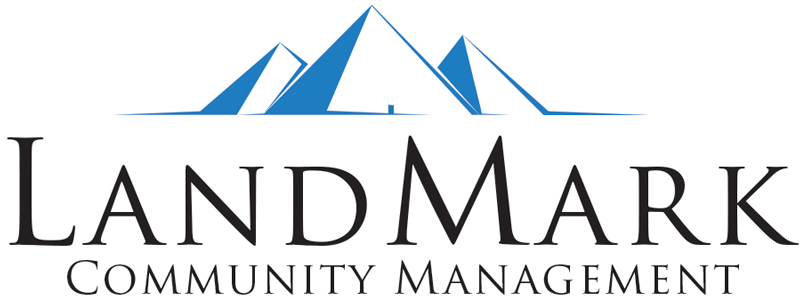Understanding HOA laws in Texas is essential for homeowners and board members. These laws ensure communities run smoothly and fairly. In this guide, you’ll find an overview of the key laws governing HOAs in Texas. With this information, you can better navigate your rights and responsibilities in an HOA.
Are There HOA Laws in Texas?
Yes, Texas has specific laws that govern the operations of homeowners associations. These laws aim to protect homeowners while also ensuring that communities are well-maintained.
Texas HOA laws regulate how associations function, their authority, and the rights of homeowners. They provide a framework for transparency, fairness, and accountability. Understanding these laws is crucial whether you’re a homeowner or a board member.
Texas Property Code
One of the primary legal frameworks for HOAs in Texas is the Texas Property Code. This code contains specific provisions that apply to HOAs, especially in Chapters 202 and 209.
Chapter 202 deals with enforcing restrictive covenants, which are the rules and guidelines HOAs use to maintain the community. These covenants are legally binding, and the Texas Property Code helps ensure they are enforced fairly.
Chapter 209, also known as the Texas Residential Property Owners Protection Act, is one of the most important parts of the Texas Property Code for homeowners. It covers topics like the collection of dues, the foreclosure process, and homeowners’ rights. This law requires HOAs to provide notice before taking certain actions, such as filing a lien or foreclosing on a property. It also gives homeowners the right to attend HOA meetings and inspect financial records.
In short, the Texas Property Code balances the authority of HOAs with the rights of homeowners. It helps ensure transparency and fair governance in Texas communities.
Texas Condominium Act
The Texas Condominium Act governs condominium communities within the state. A condominium (or condo) differs from a traditional single-family home. The Texas Condominium Act outlines how the association should manage and regulate these communities.
This Act covers several important aspects of condo living. It defines the rights of condo owners and the condo association’s responsibilities. The Act also regulates how assessments (dues) are collected, board meetings are conducted, and disputes between owners and the association are handled.
The Texas Condominium Act provides a solid legal foundation to ensure fair treatment and proper community management for those living in a condominium. Condo owners should know this law to understand how their association operates.
The Texas Condominium Act applies to condominium associations formed before January 1, 1994.
Texas Uniform Condominium Act
The Texas Uniform Condominium Act is another important law for condo owners and associations in Texas. This Act creates a standardized set of rules for creating, managing, and selling condominium units. It ensures that the rights and obligations of condo owners are consistent across the state.
One of the key provisions of the Texas Uniform Condominium Act is the requirement for condo associations to maintain transparency in their operations. The law requires condo associations to provide financial disclosures to unit owners, hold open meetings, and follow specific rules when making major decisions. This helps prevent unfair practices and promotes trust between condo owners and their associations.
The Act also outlines the procedures for creating and amending condominium declarations. These declarations contain the rules and guidelines that condo owners must follow. Overall, the Texas Uniform Condominium Act is designed to create a uniform legal structure for condominiums across Texas.
The Texas Condominium Act applies to condominium associations formed after January 1, 1994.
Texas Nonprofit Corporation Act
Many homeowners associations in Texas operate as nonprofit corporations. The Texas Nonprofit Corporation Act regulates how these entities function. This law ensures that HOAs operate in a fair and transparent manner, just like other nonprofit organizations.
Under this Act, HOAs must follow specific rules regarding governance, financial management, and record-keeping. The law requires HOAs to elect a board of directors and hold regular meetings where homeowners can attend and voice their concerns. It also sets out guidelines for filing financial reports and maintaining accurate records.
The Texas Nonprofit Corporation Act helps ensure that HOAs are accountable to their members. Since many HOAs are structured as nonprofit organizations, this Act is critical in how they operate. Homeowners should understand this law to know their rights and what to expect from their HOA.
New HOA Laws in Texas
Recent updates to HOA laws in Texas aim to enhance homeowner protections and promote transparency. One of the significant changes came with the introduction of House Bill 614. This bill brought new regulations that impact how HOAs function, ensuring homeowners are more informed about the Actions of their associations.
House Bill 614
House Bill 614, passed in 2023, adds additional protections for homeowners. One of the key provisions is the requirement for HOAs to provide detailed financial reports to homeowners. This ensures transparency, allowing homeowners to see how their dues are spent.
The bill also includes provisions to make HOA elections more transparent and fair. It sets out rules for how elections should be conducted and ensures that all homeowners have an opportunity to participate. This helps prevent board members from remaining in power without proper oversight.
House Bill 614 also expands the notice requirements for filing liens. Under the new law, HOAs must provide more detailed notices before placing a lien on a homeowner’s property. This gives homeowners additional time to resolve issues and prevents unfair or surprise liens.
The new law also addresses how HOAs can regulate homeowners’ property. It limits the power of HOAs to enforce specific rules, such as those related to solar panels, rainwater harvesting systems, and the display of political signs. These changes give homeowners more freedom to improve their property while living in an HOA community.
House Bill 614 strengthens homeowner protections and promotes greater transparency in HOA operations.
Ensuring Compliance
The HOA laws in Texas help protect homeowners and ensure fair management of communities. Understanding these laws is crucial for both homeowners and HOA board members. With recent updates, transparency, and accountability are prioritized in Texas communities. Staying informed of these HOA laws in Texas allows homeowners to navigate their rights and obligations better.
Landmark Community Management provides exceptional HOA management services. Call us today at 512-569-5527 or contact us online to learn more!
RELATED ARTICLES:


